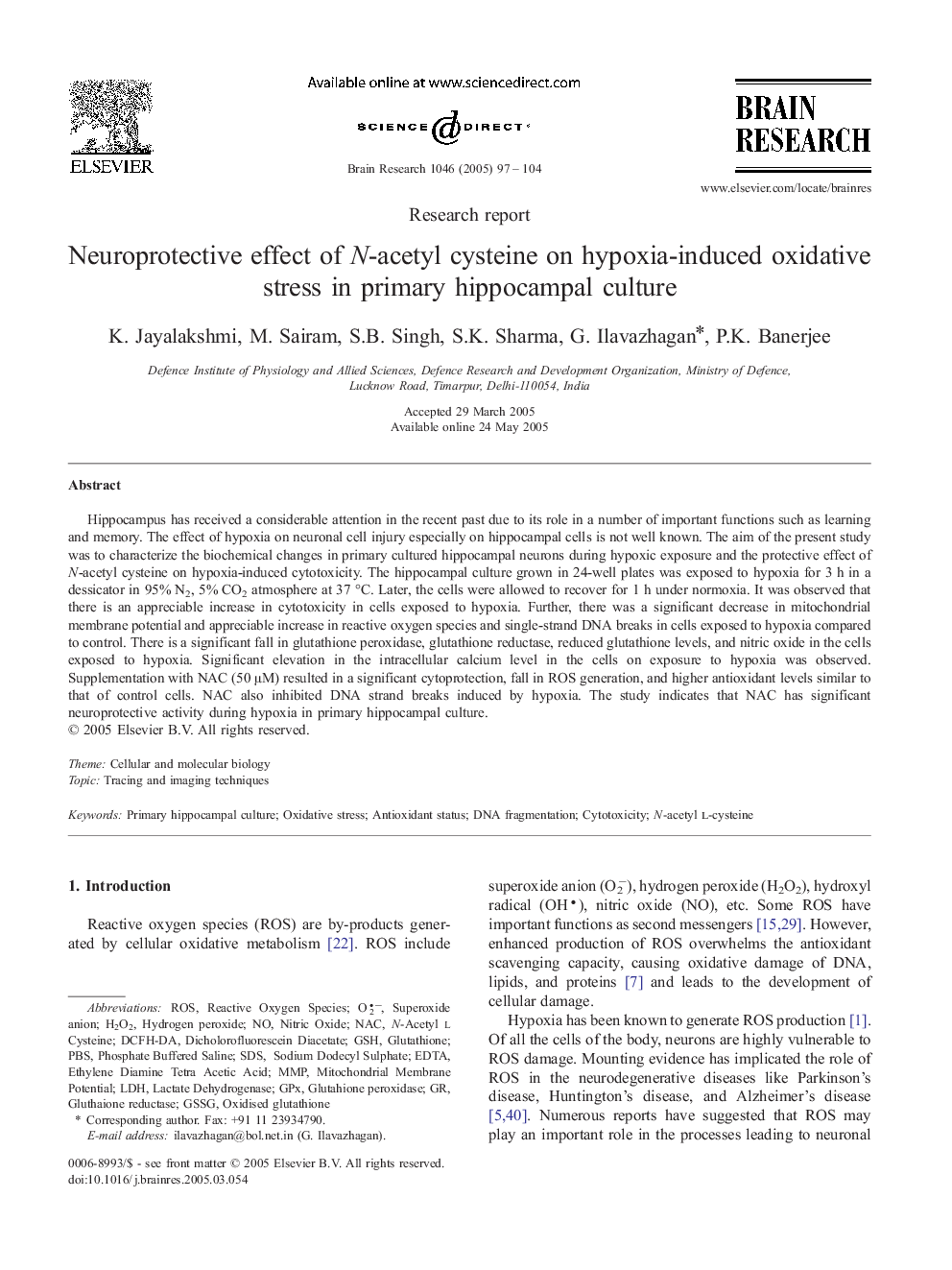| Article ID | Journal | Published Year | Pages | File Type |
|---|---|---|---|---|
| 9416341 | Brain Research | 2005 | 8 Pages |
Abstract
Hippocampus has received a considerable attention in the recent past due to its role in a number of important functions such as learning and memory. The effect of hypoxia on neuronal cell injury especially on hippocampal cells is not well known. The aim of the present study was to characterize the biochemical changes in primary cultured hippocampal neurons during hypoxic exposure and the protective effect of N-acetyl cysteine on hypoxia-induced cytotoxicity. The hippocampal culture grown in 24-well plates was exposed to hypoxia for 3 h in a dessicator in 95% N2, 5% CO2 atmosphere at 37 °C. Later, the cells were allowed to recover for 1 h under normoxia. It was observed that there is an appreciable increase in cytotoxicity in cells exposed to hypoxia. Further, there was a significant decrease in mitochondrial membrane potential and appreciable increase in reactive oxygen species and single-strand DNA breaks in cells exposed to hypoxia compared to control. There is a significant fall in glutathione peroxidase, glutathione reductase, reduced glutathione levels, and nitric oxide in the cells exposed to hypoxia. Significant elevation in the intracellular calcium level in the cells on exposure to hypoxia was observed. Supplementation with NAC (50 μM) resulted in a significant cytoprotection, fall in ROS generation, and higher antioxidant levels similar to that of control cells. NAC also inhibited DNA strand breaks induced by hypoxia. The study indicates that NAC has significant neuroprotective activity during hypoxia in primary hippocampal culture.
Keywords
GPXMMPPBSNACGSHGSSGSDSN-acetyl l-cysteinePrimary hippocampal cultureDCFH-DAO−2ROSHydrogen peroxidesuperoxide anionEDTAEthylene diamine tetra acetic acidDNA fragmentationOxidative stressCellular and molecular biologysodium dodecyl sulphateCytotoxicityPhosphate buffered salinelactate dehydrogenaseLDHNitric oxideH2O2Antioxidant statusMitochondrial membrane potentialGlutathioneoxidised glutathioneReactive oxygen species
Related Topics
Life Sciences
Neuroscience
Neuroscience (General)
Authors
K. Jayalakshmi, M. Sairam, S.B. Singh, S.K. Sharma, G. Ilavazhagan, P.K. Banerjee,
